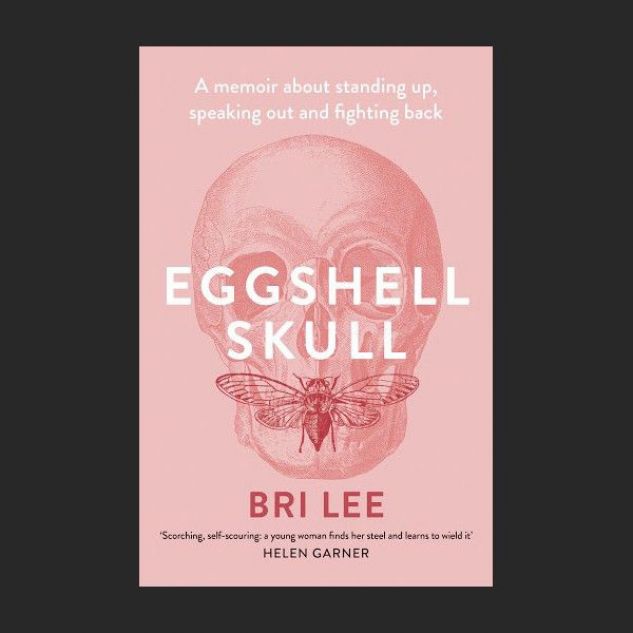College
College of Arts, Society and Education
Publish Date
12 July 2019
Related Study Areas
Speaking up for justice
Award-winning author, freelance journalist and criminal law advocate, Bri Lee is using writing to change sex crime legislation in Queensland. She will talk about how to keep our pens mighty at the upcoming Colin Roderick Memorial Lecture at JCU.
On Tuesday afternoon, Bri Lee got a call that she had been longing to hear for the past 12-months. The dream that she had been tirelessly working towards had finally come true. The Queensland Attorney-General and Minister for Justice, The Honourable, Yvette D'Ath announced that she is referring the mistake of fact defence to the Queensland Law Reform Commission for expert advice on how to abolish the legislation.


In 2018, Bri’s award-winning memoir, Eggshell Skull, exposed the sexism and shortcomings of the Queensland Legal System in dealing with sexual assault cases.
“I was a Judges' Associate at the Queensland District Court for a year, and I saw a lot of sex crimes,” she said. “After I made a complaint about my own matter of abuse, I decided to write a book about what I saw to be really systemic issues in the Australian justice system.”
Eggshell Skull established Bri’s career as a writer and freelance journalist. Becoming a public figure empowered her to use writing to advocate for procedural reforms and changes to sex crime legislation in the Queensland legal system. As a sexual abuse survivor, she said she often felt silenced by society.
Campaigning for the vulnerable
“A huge part of being a survivor of some kind of abuse or assault is that everybody wants you to shut up. Having my voice amplified within the media all the time makes me feel really good about myself, and it’s given me a feeling of responsibility to use that platform for the right things.”
Over the last 12 months, Bri and Bond University Law Professor Jonathan Crowe launched a public campaign against the use of the 110-year-old mistake of fact defence in the Queensland justice system. According to Bri, the mistake of fact defence allows rape myths to undermine Queensland consent laws and makes it hard for sexual assault survivors to get justice.
“The trouble with the mistake of fact legislation is that it allows any defendant who had an honest or reasonable belief that the complainant was consenting to be acquitted,” she said. “In cases where other complicating factors are present, such as the complainant has language barriers, mental incapacity, takes the freeze response or was intoxicated, it is very easy for the defendant to go free.”
Over the course of the campaign, Bri along with hundreds of the public wrote letters lobbying for mistake of fact defence reforms in the Queensland Criminal Code. Bri described the campaign as being built from hundreds of words, letters and the personal stories of sexual assault survivors.
“We really escalated our efforts in the last two months in terms of the fight against the mistake of fact legislation,” she said. “I do believe in the power of language to shape perception and idea. The language we use to frame issues and tell stories has a huge impact on whether or not change is made.”
The mistake of fact defence reform will make it easier for sexual assault survivors to get justice. Bri has branded the achievement as another win for the Me Too movement in Australia.
Witnessing Bri publicly speaking about her own matter abuse has inspired and empowered other survivors to come forward. Regularly, survivors write to her about their own matters of sexual assault or abuse.
"It is a great privilege to receive such intensely personal and meaningful correspondence,” she said. “A lot of people write to me after reading my book and say that it made them feel empowered to do something in their owns lives — as an author that is pretty much all you can ask for."
Moving forward, Bri will continue to advocate for improvements to the Queensland justice system.
“I am of the belief that our legal system was formulated without women and children in mind,” she said. “We know that in a societal sense young women, pre-teen and teenage girls are often the disempowered and disenfranchised individuals who are the least represented in institutions.
“The legal system is struggling to adapt to private crimes because the evidence that juries expect to see in terms of CCTV footage or DNA evidence isn't present. A lot of the current practices around jury selection and cross-examination are barbaric and re-traumatising for survivors. We need to collectively acknowledge that there is always the capacity for improvement to how the system interacts with its most vulnerable, and the people it is supposed to serve.”


During the Colin Roderick Memorial Lecture, Bri will speak about her journey through the Australian Legal System, as a legal professional, complainant in her own case and a criminal law advocate. Events will be held on July 17 at JCU Cairns and July 18 at JCU Townsville.
If this story brings up issues, there are people who can help – you can contact 1800 RESPECT, which deals with sexual assault, or Lifeline Australia, which deals with crisis support on 13 11 14.